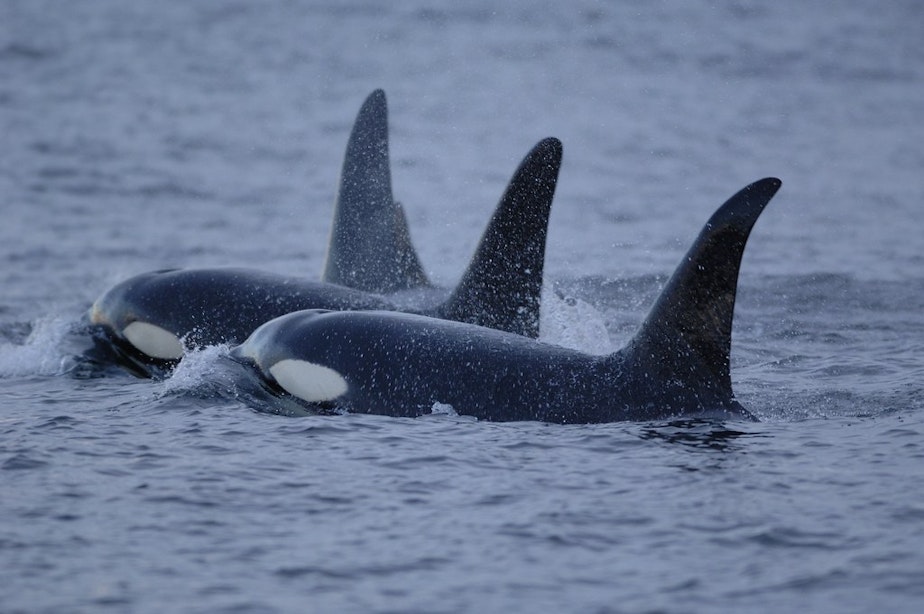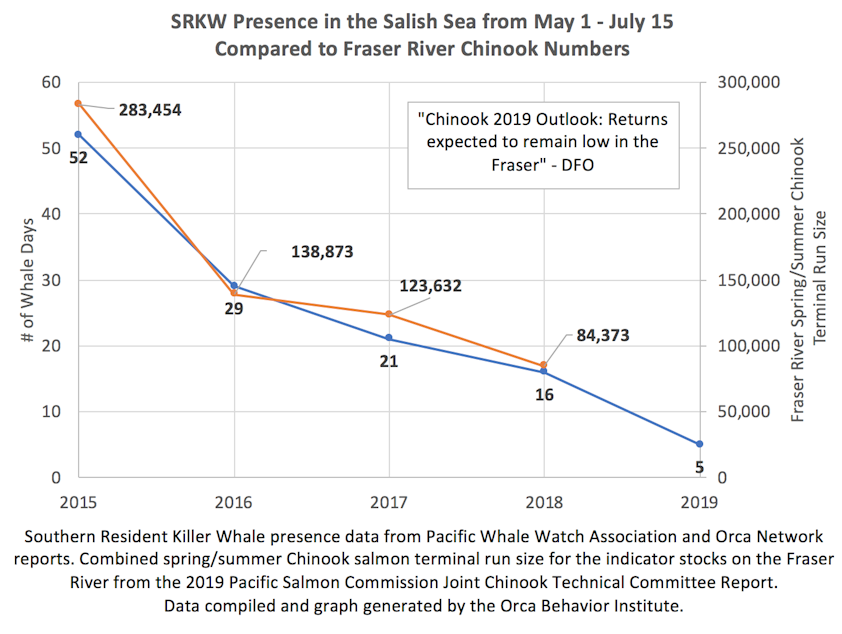Puget Sound orcas look fatter ... maybe because they've moved away

It appears that endangered orcas that live around Puget Sound may be moving elsewhere.
Groups of southern resident killer whales aren’t showing up this year like they used to. Researchers link the scarce sightings with scarce chinook salmon, the orcas’ favorite food.
Salmon runs on the river have fallen dramatically the past few years, so it looks like the killer whales are finding food somewhere else.
This month, the whales were seen for just two days around San Juan Island.
“That is absolutely crazy,” said Deborah Giles, a killer whale expert at the University of Washington. “Normally speaking, we would have seen the southern residents in their inland waters almost every day.”
Giles was on the water July 5 and 6 and observed the whales foraging and socializing.
Sponsored
“The ones that we saw looked actually really more robust than I’ve seen them looking in a while,” she said.
The scientists also collected whale poop samples – which looked healthier, too.
“Nice and thick and fatty. It floated at the surface in big globs, as opposed to being really watery and diffuse,” she said.
Giles doesn’t know where the whales are going, she said, or if they’re getting enough to eat.
A combination of factors have hurt the salmon runs they rely on—from habitat and agriculture to fishing.
Sponsored
The Orca Behavior Institute has found a tight link between numbers of chinook salmon on the Fraser River and the absence of the killer whales. President of the institute, Monika Wieland Shields, put this graph together this morning:

Wieland Shields wrote in an email:
“While we are hopeful that they are finding food elsewhere, the stark reality is undeniable: If we don't recover spring and summer runs of Chinook on the Fraser River, we will no longer have the Southern Residents as our neighbors here in the Salish Sea.”
The Center for Whale Research, based on Friday Harbor, has also drawn a link between Fraser River Chinook runs and the whales' absence. The center is advocating for increasing the salmon population to help solve the problem.

